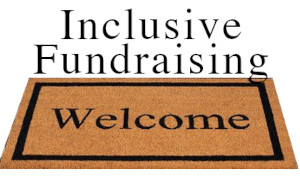
If you champion plain language, ease-of-reading writing in your organization, you will run into opposition.
The habit of complex writing is deeply embedded in our education and professional cultures. There are a number of typical arguments against communicating clearly. Here are ten of them — and their answers — from Writing for Dollars, Writing to Please: The Case for Plain Language in Business, Government, and Law by Joseph Kimble.
- Plain language is anti-literary, anti-intellectual, unsophisticated, drab, ugly, bland, babyish, or base. It isn’t. Those qualities are inherent in the content of writing, not they approach. Plain language can be any of those things. So can complex writing.
- The idea of plain language is too vague to be useful. Plain language has more than enough vocabulary and range of expression to be precise and useful. The fact is, complex language is more likely to slip into vagueness, because it leans so much on abstractions.
- Plain language is “text-based” rather than “reader-based.” Using plain language requires you to look carefully at text. But it should be obvious that the reason you look at text is to improve its connection with readers.
- Plain language uses just simple words and short sentences. That describes poorly written plain language. When it’s well written, it is pleasing to the ear, and beautiful.
- Readers may expect complex language in important documents. This may be true. But the research is clear: Whatever people expect in certain documents, they prefer, comprehend, and trust plain language far more.
- There isn’t enough time to write in plain language. This is somewhat true: Writing in plain language is more difficult. Especially when all your education and professional training has been aimed at complex professional language. But plain language is learnable by anyone. Lack of skill and/or time are no excuse for writing that doesn’t connect with readers.
- The push for plain language will result in less work and less prestige for high-end professionals. This is the lawyers’ excuse, but it comes from other professionals too. I’d say it’s a poor lawyer whose secret sauce is writing nobody can understand. Legalese is one of the top reasons law is among the least-trusted of professions.
- Plain language is trying to be intelligible to everyone, which is an impossible goal. It’s not possible to reach absolutely everyone with your writing. The goal of plain language is to reach as much as possible of the intended audience. That is entirely possible.
- Plain language can’t be done when you need to use technical terms. Specific technical terms (like names of diseases and medications) can make plain language more challenging. But it’s still possible if you take the time.
- Plain language is not precise. Any language can be imprecise. In fact, complex jargon is far more prone to lack of precision than the clean and clear style of plain language.
More posts in this series:
#bogus #reasons #keeping #writing #hard #read










